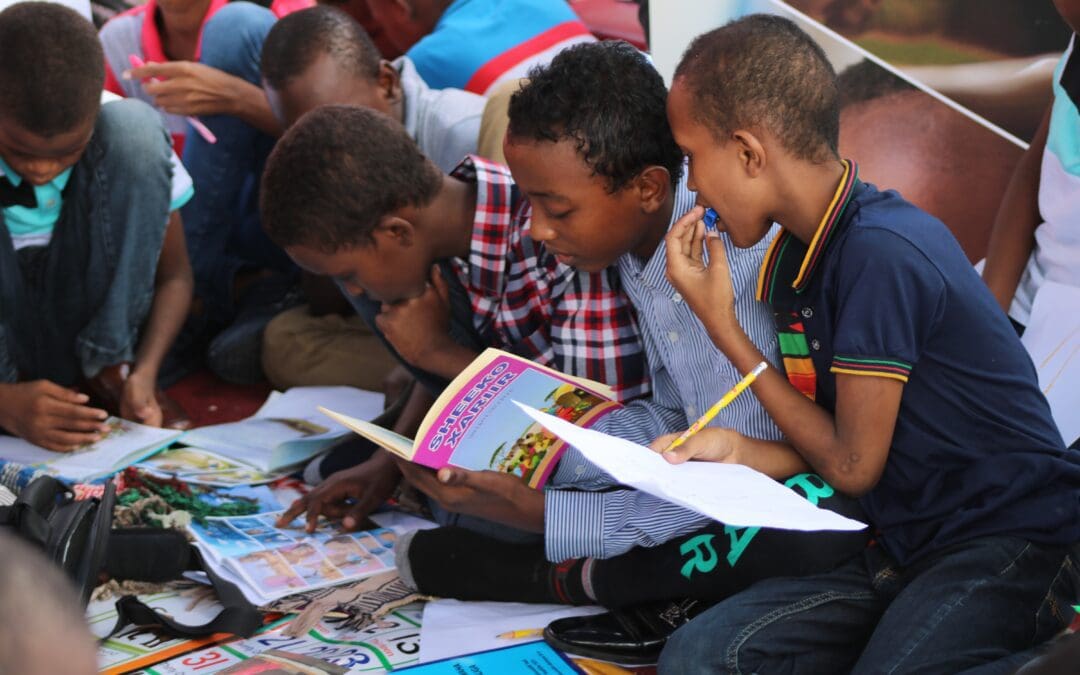Why does early childhood education matter? Because hope matters. Because confidence matters. Because opportunity matters.
Education is at the heart of The Anita Mendiratta Foundation (AMF). It drives everything we do. As outlined in the UK Charity Commission, our mission is to support ‘the advancement of education in developing communities around the world with the aim of remobilisation of communities when they are in recovery stage following crisis events.’
Sadly however, in the context of a crisis, it doesn’t usually come to mind. Yet education is often a vital cornerstone to a successful recovery from a crisis.
Speaking to Grace Towler, Co-Lead of Global Projects at AMF and a former educator, we discussed more on why education is at the heart of what we do.
WHAT MAKES EDUCATION SO IMPORTANT FOR BOTH CHILDREN AND THEIR COMMUNITY?
“Education is so much more than simply a tool to meet the needs for basic job qualification. It goes well beyond just academic learning, education teaches a child to observe, understand and comprehend. Education provides a roadmap to help guide them in how to approach life. By having safe access to schooling, a child can truly blossom mentally, emotionally, socially and physically.
Ultimately, education doesn’t just provide stability, financial security and opportunities. It inspires curiosity, it increases a child’s confidence and it teaches kindness. Education is the key all children need and deserve to unlock both their own and their communities future potential.”
SO, HOW DOES EDUCATION LINK TO CRISIS?
“When crisis hits, one of the first pillars to fall, and last to be rebuilt, is education. Rightly, the initial focus is on rebuilding the physical foundations and restarting the economy. But without a safe place for children to go to each day, the adults within the community are unable to rebuild these key pillars.
It is usual practice after a crisis for schools to become a location for make-shift refugee camps.
Although this may be the only safe building for people to shelter, it not only takes away the children’s access to actual education, but also safe childcare. Once again preventing the adults from rebuilding key infrastructure.
From the perspective of the little ones, having the routine of a school-day brings back a vital sense of normality. When crisis hits, children often lose everything they know, need and love. So for many, education can offer the security they so desperately need, the stability of teachers, of school friends and the day-to-day routine education brings.
When all this is taken into account, it’s clear to see just how important the rebuilding of educational infrastructure is. Education can often be the first spark needed to ignite the hope, promise and resources needed by communities to recover from crisis.”
WHAT ABOUT EDUCATION BEYOND RECOVERY, CAN IT PREVENT FUTURE CRISIS?
“Education is absolutely crucial in preventing future crises. It teaches children vital concepts such as peace, equality, tolerance, empathy and sustainability. A school can provide the grounds to bridge the gap between different ethnic groups, helping to erode long-standing cultural differences and discord that can lead to conflict.
Education empowers children by providing them with the knowledge they need to protect themselves by identifying signs of future potential disasters. In each classroom there could be future scientists, artists, adventurers and leaders who will transform their communities, but they all require a safe, secure place to learn and flourish.
As one of our greatest leaders so eloquently said, “Education is the most powerful weapon which you can use to change the world” – President Nelson Mandela.”
Join us – be a part of re-inspiring hope, opportunity and possibility. #AMFCallToAction

Grace Towler, Co-Lead on Global Projects.

